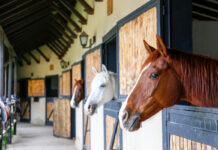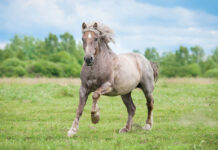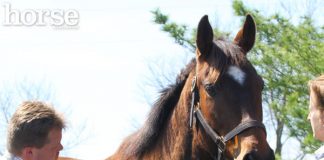As horse owners, one of the most universally dreaded situations we all fear is colic. Your horse comes in for his evening dinner but is clearly not right. Some colicking horses are simply not interested in eating; some lie quietly on the ground looking at their abdomen. Others are more dramatic about their pain—stretching, pawing, getting up and down, and rolling.
- Any horse can colic, even if they are otherwise healthy and receive good care.
- Modifying a horse’s diet, or feeding a diet that has too much starch or insufficient fiber, can increase a horse’s colic risk.
- Leaky gut in horses can lead to colic and other systemic problems ranging from dull coat and poor hoof quality to muscle wasting and laminitis.
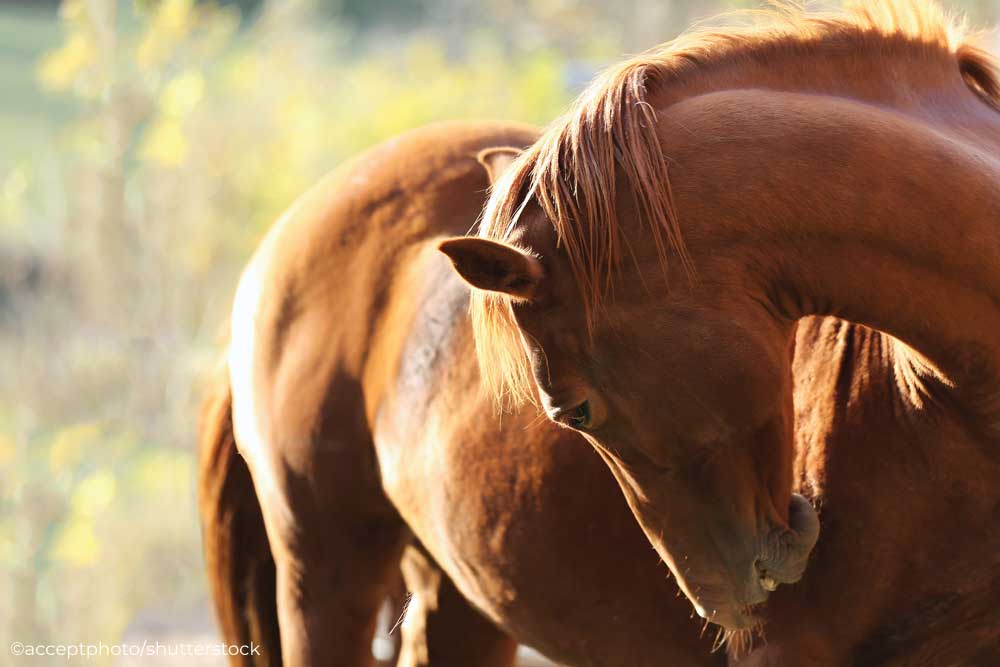
It’s a helpless feeling to watch a horse experience abdominal pain while you await your veterinarian’s arrival. An often-asked question is, “Why is my horse colicking?”
Causes of Colic in Horses
Horses can develop colic even under the best of care, seemingly for no apparent reason. Intestinal pain occurs from a variety of causes, but some are related to management practices.
Modifying feeding routines significantly within a two-week period is known to contribute to intestinal crisis. Sudden feed changes alter the intestinal microbiome (collection of gut microorganisms), setting up conditions for intestinal upset.
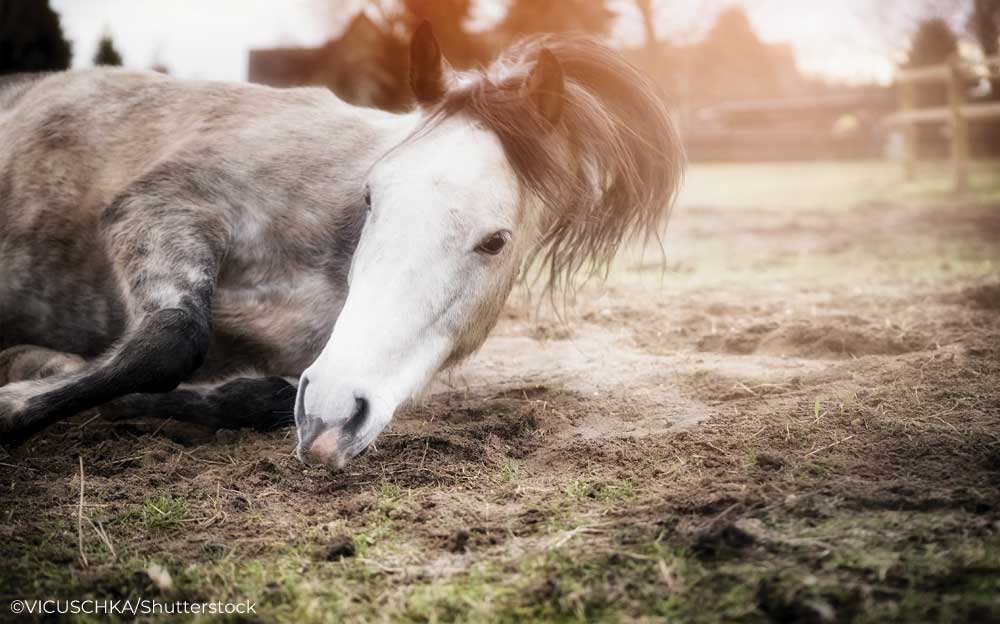
While many horses are fortunately able to adapt to an altered diet with no ill effects, others have a more fragile intestinal system and experience impaction, gas distention, diarrhea or intestinal displacement, all of which can manifest as colic pain.
The objectives in dealing with colic in horses are: 1) prevention, and 2) quick recognition that your horse is having an intestinal problem. Have you ever counted how many manure piles a day your horse passes? On average, it should be eight to 12 per day, which represents normal intestinal digestion and motility.
What your horse ate three days ago is what passes through as today’s manure. Fewer than a normal number of manure piles means you should take note and monitor him carefully.
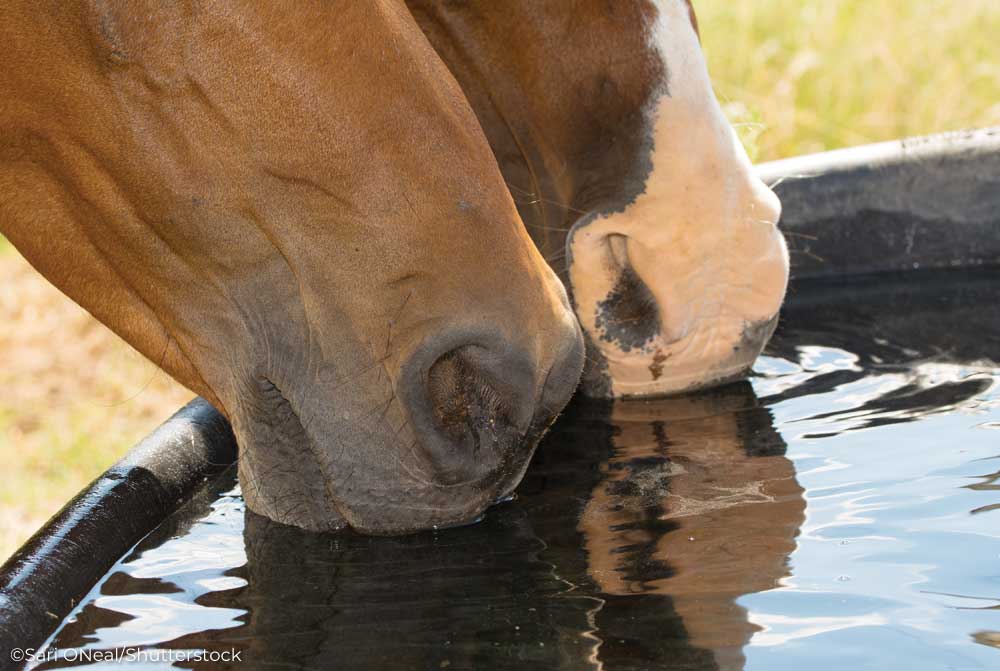
High-fiber diets of mainly forage (hay and/or pasture) are critical to your horse’s intestinal health. Studies show that eight to 10 percent of all colic cases in horses occur due to impaction, where digested feed forms a blockage in one or more portions of the large intestine.
Typically, a horse needs to drink a minimum of 7½ gallons of water for every 20 pounds of hay he consumes, and additional water intake is necessary in warm weather conditions and when exercising.
Rate of Passage
Exercise reduces intestinal activity by up to 85 percent as blood flow is diverted away from digestion and into working muscles. Additionally, water is pulled from the intestinal reserves to replace hydration lost in sweat.
Many other conditions reduce intestinal motility:
- Fasting between meals that are fed only twice a day.
- Large amounts fed at one time, especially only twice a day. Horses evolved to eat intermittently for about 18 hours a day, grazing small amounts frequently over a long period of time rather than consuming the daily allotment in two meals.
- Changes in routine or diet within the preceding two-week period increases colic risk.
- Feeding large amounts of grain slows intestinal passage time, particularly if a horse eats more than 5 pounds at a feeding.
- Inconsistent feeding intervals disrupt normal intestinal function.
- Stall confinement reduces fiber digestibility by 20 percent, resulting in delayed passage of food through the intestines. Fluid is absorbed out of digested material when transit is slowed. Stall confinement is responsible for as many as 54 percent of impaction colic cases.
- Non-steroidal anti-inflammatory drugs (NSAIDs) slow intestinal motility.
Sand Colic and Enteroliths
A horse may inadvertently consume sand or decomposed granite (DG) when fed on these surfaces. Accumulation of sand or DG in the large intestine often leads to intestinal irritation, diarrhea, impaction and/or colic pain.
High-fiber diets and psyllium supplementation not only help move sand through the digestive tract, but psyllium also acts as a prebiotic to encourage beneficial bacteria to populate the microbiome and improve digestion.
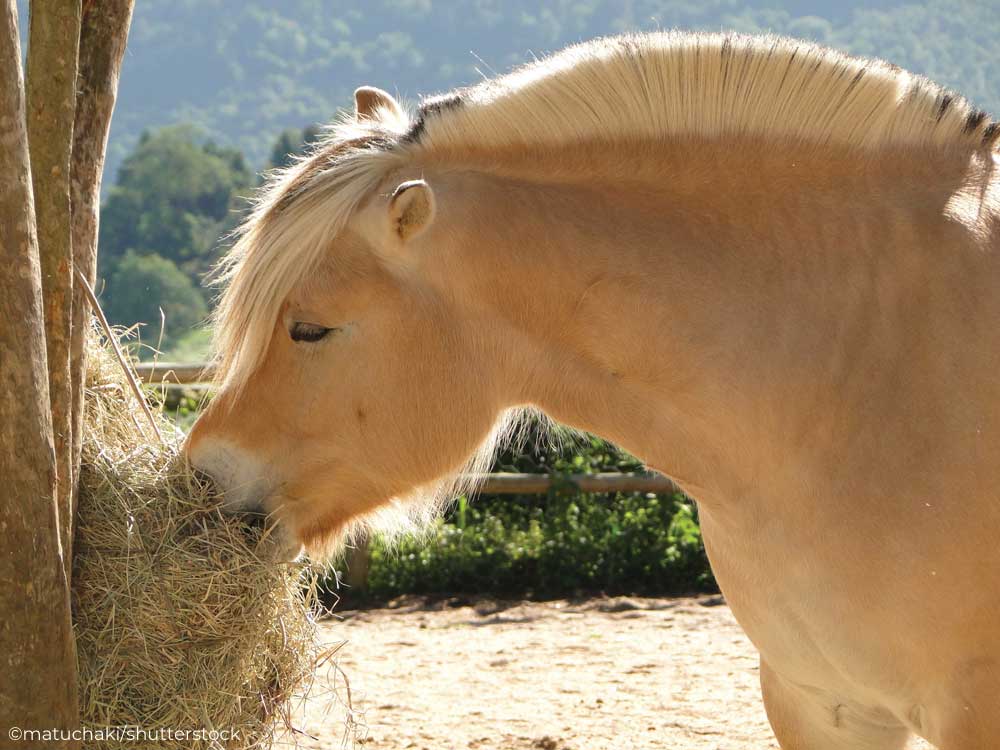
In the Southwest and on the West Coast, enteroliths in the colon may develop with alfalfa hay consumption. These intestinal stones are composed of magnesium-ammonium-phosphate mineral salts that form around a tiny pebble, wire or other small foreign object that a horse may have ingested. Large or multiple enteroliths can cause pain, and in cases where they are causing problems, they must be removed surgically to avoid blockage or damage to the intestine.
Leaky Gut
Because the intestines form a closed tube, the gut is cocooned away from the rest of the internal organs. The communication between the gut and bloodstream is through the intestinal lining, which forms a barrier to passage of unwanted microbes and biochemicals into the bloodstream. Anything that causes a breakdown of that barrier results in increased intestinal permeability, allowing toxic materials and bacteria to be absorbed into the bloodstream.
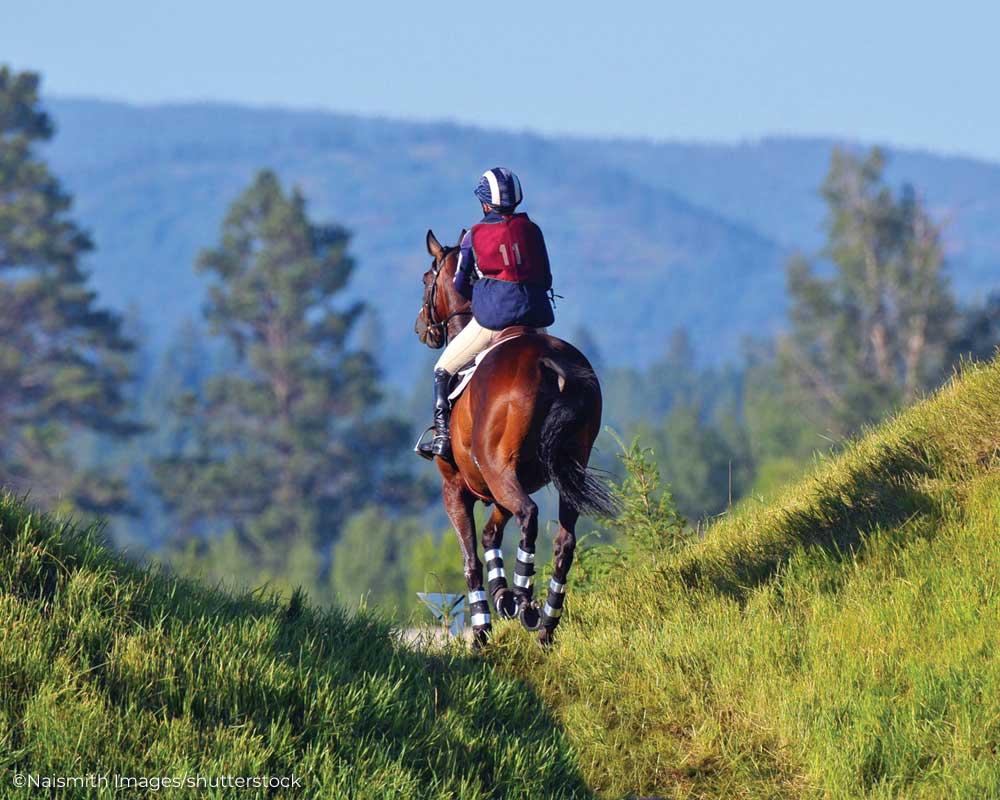
This results in systemic inflammation, which creates a number of significant health issues, including poor performance, behavioral and personality changes, lethargy, recurrent gastric ulcers, dull hair coat and poor hoof quality, allergies, hives, muscle wasting, and even serious conditions such as insulin dysfunction, equine metabolic syndrome, uterine infections, skin infections, pneumonia and laminitis.
Colic may also occur in our horses, but all these other systemic problems have their source in abnormal intestinal function and leaky gut.
Further Reading of Colic in Our Horses
This article originally appeared in the June 2019 issue of Horse Illustrated magazine. Click here to subscribe!

